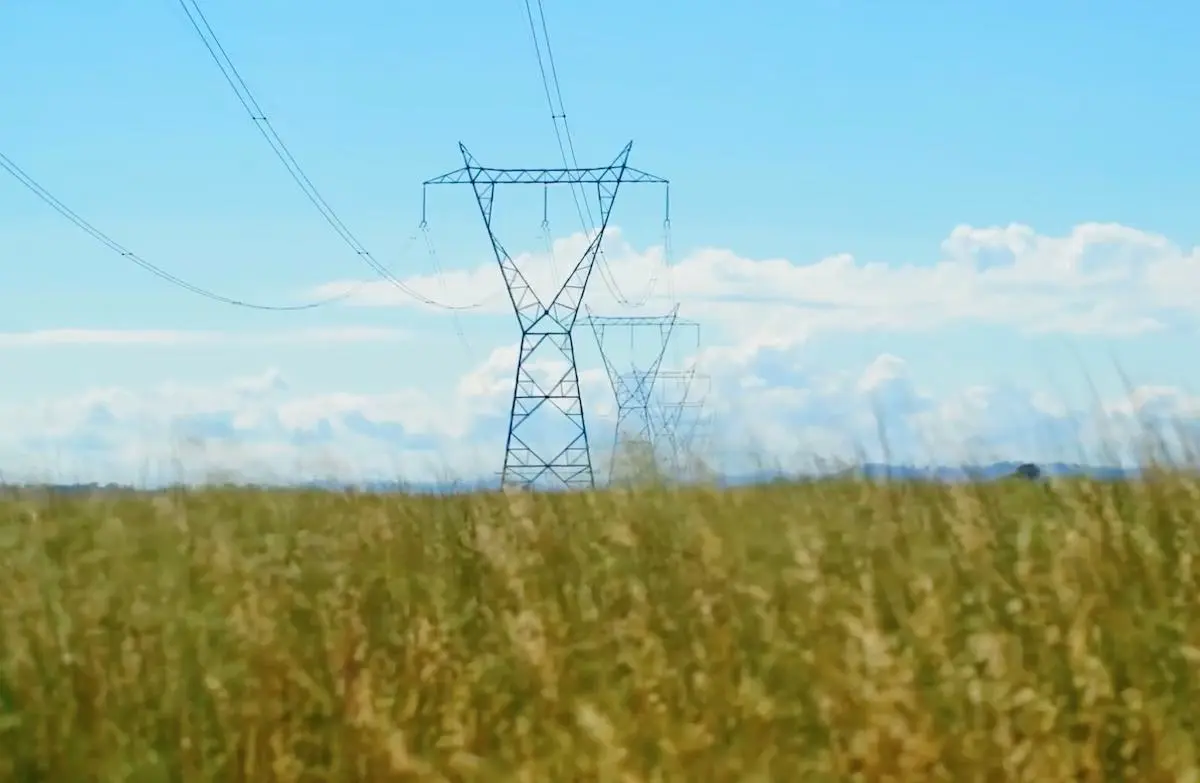Victoria’s Labor government has announced it will pay landholders whose properties host new power transmission lines $8,000 per year per kilometer for 25 years, in a bid to help smooth the state’s transition to a 95% renewable grid by 2035.
The Andrews government says the payments, which will be additional to any easement payments from network companies, acknowledge the critical role that transmission infrastructure hosts will play in the state’s “renewables revolution.”
“We want to get the process for planning and approving new infrastructure right, so we can make sure the renewables revolution is a shared, equitable legacy for all Victorians,” state energy minister Lily D’Ambrosio said on Friday.
The payment offer comes just one day after the Australian Energy Market Operator unveiled its new preferred route for the Victoria to New South Wales Interconnector West (VNI West), shaped by feedback from community and stakeholder consultation.
The proposed route would install a new 500kV double-circuit overhead transmission line running from Bulgana in western Victoria to Dinawan in NSW via a new terminal station near Kerang – a path AEMO says has lower costs, more consumer benefits, and fewer social and environmental constraints.
The government says landholders who host transmission easements along the VNI West and Western Renewables Link transmission corridors, once that route is finalised, will be the first to receive the newly announced government payments.
“This will ensure an equitable approach for projects across the Victorian-NSW border, as well as other major projects including the Victoria-Tasmania Marinus Link project and transmission links connecting Victoria’s Renewable Energy Zones (REZs) and future offshore wind projects,” it says.
Alongside news of the payments, the government has also released a consultation report for a proposed approach to planning and developing of new network infrastructure, dubbed the Victorian Transmission Investment Framework (VTIF).
The report summarises feedback gleaned through six weeks of consultations with regional communities, Traditional Owners, stakeholders and industry representatives.
The report recommends earlier and deeper community engagement on proposed new transmission projects, a new strategic land use assessment to support better decisions on land use, a new approach to benefit sharing and meaningful partnership with Traditional owners throughout the entirety of the transmission lifecycle.
Consumer advocacy groups have so far welcomed Victoria’s offer of compensation to landholders hosting major new transmission works, having lobbied the government to follow in New South Wales’ footsteps.
Last year the NSW government introduced a policy to pay transmission line hosts $200,000 per kilometre over a 20-year period. The Victorian government offer almost matches this, paying $200,000/km over a 25 year period.
“We have advocated for increased landholder payments because everyone should benefit from the renewable energy transformation, especially communities that host the infrastructure for it,” said RE-Alliance national director Andrew Bray on Friday.
“By hosting transmission lines, landholders are creating value; they are core stakeholders in our clean and reliable renewable energy systems.”
Bray says the deal will bring economic benefits to thousands of Victorian landholders and their families but also cautions that proper payment for landholders is “not a silver bullet” for social licence.
“Transmission companies need to listen to and understand the needs of the local community and the environment,” Bray says.
Farmers for the Climate Action says that while it is still waiting to see more detail, the Victorian government’s payment plan is “definitely a step in the right direction” in alleviating community concerns over the build-out of transmission infrastructure.
“We know we need transmission lines to connect renewable energy to consumers, driving down electricity costs and reducing cost of living,” said Cam Klose, strategy director for the group.
“Farmers need to be respected and rewarded for transmission on their land and this policy recognises it. This will also help impacted farmers diversify their income, which pays during drought,” Klose said.
“This is the kind of approach communities and environment groups need to see more of to feel confident Victoria can build transmission to act on climate while protecting biodiversity and sharing the benefits equitably with the community,” said Friends of the Earth on Friday.
“It is essential that communities are supported to participate in planning transmission and this must be coordinated by government, it cannot be left to the private sector,” says FoE Gippsland organiser Wendy Farmer.










